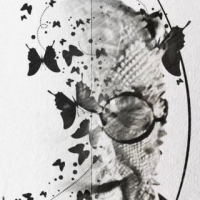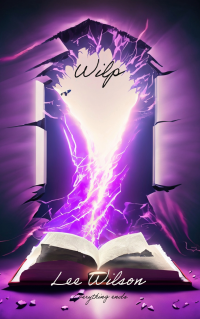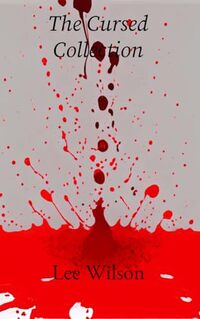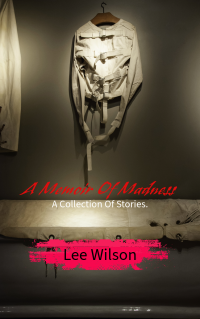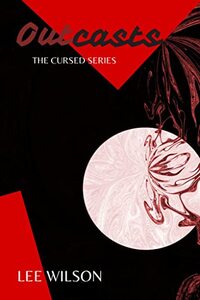Lee Wilson Interview Published on: 04, Jan 2024
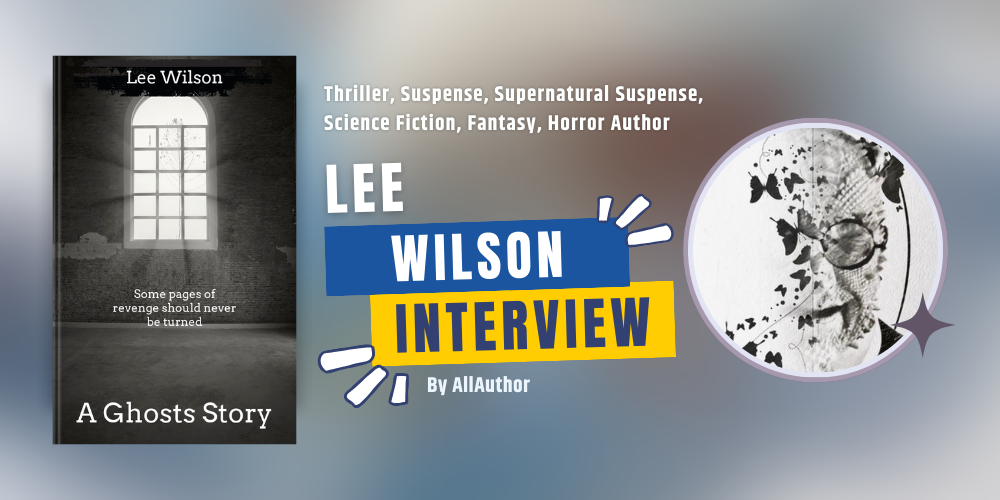 Can you tell us about your journey as a writer and how you got started?
Can you tell us about your journey as a writer and how you got started?
I’ve always written, but in the past, it had only been for my own entertainment. I’ve friends who used to tell me to put it online, and I did that with a few short stories (that became ‘The Satanic Curses’). People seemed to enjoy them, so I published more.
Your writing often delves into mental health topics. How has your personal experience influenced your work, and what do you hope readers take away from it?I suffer from various mental health issues. I’ve found that many times others don’t understand the multiple things that can hinder someone mentally. Explaining it in a non-fictional way can be a little challenging and, if you are not really interested, boring! I thought I would try to entwine the real with the unreal in an attempt to make some of these problems understood. If only a little. I am also learning myself, all the time, about different illnesses and how they affect others.
What inspired you to write your first book, and how did you go about the writing process?I was actually having a bastard of a time getting ‘A Ghosts Story’ to work. The story in itself was sound, but something just wasn’t clicking. I decided to take my mind off it and write a pulp-style horror that became ‘Outcasts.’ Little did I realise at the time that ‘A Ghosts Story,’ ‘Outcasts,’ and ‘Wilp’ are all one large story. What was missing from ‘Ghosts’ was a little bit of silliness and fun that ‘Outcasts’ provided.
Are there any authors or literary works that have significantly influenced your writing style or thematic choices?Not really. I read a wide range of genres and authors. I did like how William Peter Blatty took a completely different direction in his ‘Exorcist’ follow-up ‘Legion.’ It gave me the confidence to take completely different genres in the complete ‘Cursed’ set, but when viewed together, you can enjoy one hell of a ride.
In "The Nameless Voyage," you addressed the refugee crisis through fiction. What inspired you to use storytelling as a means to shed light on social issues?Few people care about these issues. I know this because I am often in the minority in my thinking and thoughts surrounding them. I figure if I can make one person think before voting or falling for populist policies, then I have done a good job. If not, then I have tried, and that has to count for something.
"Let us go camping" takes a comedic approach to a serious topic like homelessness. How do you balance humor with the gravity of social issues in your writing?Heh, I didn’t think anyone had read that one, aside from Jools, who narrated it for her Youtube channel. All of my short stories are published for free before being compiled into one volume. I often focus on politics in the things I publish for free. Sometimes, I use humour to make a point. People, myself included, don’t like to be preached at. Like with ‘The Nameless Voyage,’ if I can hide a message in a good story, then I feel I have done my job.
Your novella, "The Tormented Mind," is described as political fiction. How do you see fiction contributing to political discourse, and what role do you think literature plays in shaping public opinion?I get quite frustrated with politics in the UK and how we are running headfirst into various political pitfalls. I wanted to write a story about hope. Something that says no matter how bad it is, there is always a way; you just have to grasp for it.
Both of your short story collections, "The Satanic Curses" and "A Memoir Of Madness," have been well-received. Can you share your creative process when crafting short stories, and how do you decide on the themes?I’m very random. I don’t really have a process; I can have an idea, and then I write and see where it takes me. ‘Curses’ actually started with ‘The Lilith Legend: Rising.’ However, when compiled, I put Limbo first. The Lilith stories are a base for the ‘Cursed’ collection (Outcasts/Ghosts/Wilp & others).
Your upcoming works include "A Ghosts Story" and "Wilp." Can you provide a glimpse into what readers can expect from these projects?‘A Ghosts Story’ and ‘Wilp’ are both now released. ‘Ghosts’ mixes traditional styles with a little full-on horror. It flashes between timelines and will seem random at first. It all comes together in what I hope is a satisfying ending and wraps everything up. ‘Wilp’ well, that’s a tough one. It spans so many genres in telling the tale that it is hard to quantify. The intro will seem simple enough; it starts with a murder in the past and a dead body in the present. But by the end of the first ‘Integral’, you will realise you are about to read and understand so much more about the previous stories. The Devil makes an appearance, and you can never be sure if he is good or evil. There are various fantastic creations, and the world is never quite what it seems. Questions that may have been asked of the previous novellas and shorts are answered, and the only remaining thing, come the end, is the answer to the question, Who, or what, is Wilp?
How do you approach genre-blending in your writing, and what challenges and rewards does it bring?Boring answer, I’m afraid. I go where the stories take me. I don’t set out to jump genres or twist worlds; that is the path I have taken when writing. In much the same way as any reader, I, too, am travelling and learning the stories as I write them. I think that is why I enjoy re-reading my own stories so much.
As an author living with mental health illnesses, how do you manage the balance between self-expression and the responsibility of accurately portraying these experiences for your readers?There has to be some truth in these things. Real-life horrors are far scarier than any bogyman. But, at the risk of repeating myself, nobody likes someone who is preachy. A story has to be good first. Samantha in ‘Wilp’ has ADHD. I hope someone with ADHD may relate to some of her quirks. And, if I am lucky, someone without ADHD (like myself) may recognise it if they see it in a friend. The story, though, always takes priority. I had fun with Samantha’s ADHD and many of the other illnesses I’ve hidden in my works. If I can open one person’s eyes, then it is a good job done.
"The Tormented Mind" conveys a message about the public's power to create change. How do you believe literature can inspire and empower readers to take action in their own lives and communities?‘The Tormented Mind’ had to have a message of hope. I never found Winston particularly likeable, but I did relate to certain thoughts of his, and many of his complaints about the world. I didn’t want him to end up as the ‘good guy’ in the story. (I brought him back in the finale of Wilp, as well). I wanted an ending that sent a message, and that message was that people have the power to enact change. They have to take it. Will anyone listen? As Winston may have thought himself, I doubt it.
What advice do you have for aspiring writers who want to address sensitive topics in their work, particularly those related to mental health and societal issues?Go for it. There really is little advice better than that. Not everyone will like what you do. Not everyone will leave a review or constructive criticisms. In fact, most won't. Write for yourself; if others like it, it’s a bonus.
Do you have any upcoming projects or ideas that you'd like to share with your readers and potential new fans?I’m writing what is pencilled in to be my next novella released via my website. I’m also working on another piece that will be my next novel or novella for retail. They may be released together as they are both dystopian stories set in a not-too-distant future. The latter deals with a religious cult that has taken control of the world. The former is closer to home and involves the UK having fallen apart and split into “sectors.” It chronicles one man’s trek across the country and his discovery of “why” things are as they are. I am hoping to get that one mailed to my editor in the new year.
How has been your experience working with AllAuthor?I stumbled across AllAuthor when I was looking for a means to promote my work. Promotion is, without a doubt, the biggest ballache going when it comes to writing. I would say to anyone to be realistic in what you expect, but I have found nothing in the price range that compares.
Share Lee Wilson's interview
Lee Wilson, known as SpeakingSatan, resides in southwest England, sharing his journey through mental health struggles in powerful narratives. Lee's diverse works tackle societal challenges, from refugee crises to political change, demonstrating his commitment to meaningful storytelling. Through a blend of fact and fiction, he sheds light on issues like depression, agoraphobia, and homelessness, urging readers to understand and empathize.
